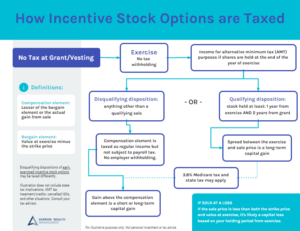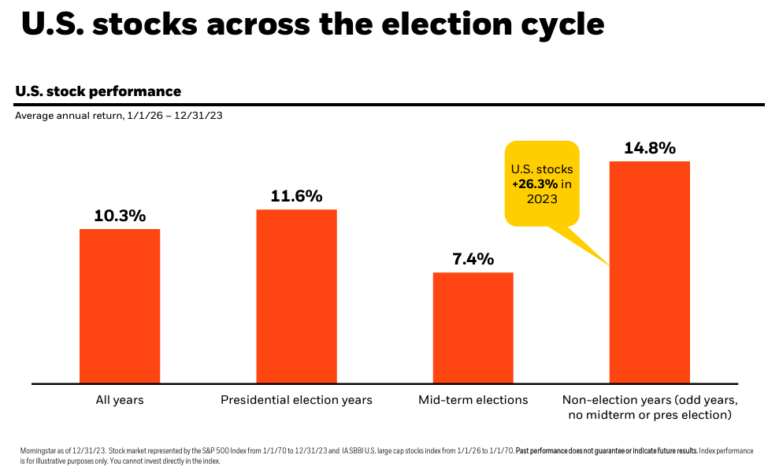There are many ways individuals become suddenly wealthy. Depending on the nature of the windfall, planning opportunities and considerations will vary. For example, the tax laws and distribution terms for an inheritance is quite different to the tax and liquidity considerations during an IPO. Managing sudden wealth paid in cash after the sale of a business or winning the lottery also requires planning, but perhaps with a bit less to unpack in the beginning. Sudden wealth events rarely happen more than once during someone’s lifetime (if at all), so proper financial management is essential.
What is sudden wealth?
What is sudden wealth? When someone experiences a life-altering financial windfall or increase to their net worth, it’s often called a sudden wealth event. There are many different types of sudden wealth events, for example:
- Receiving an inheritance
- Stock options or equity compensation
- Sale of a business
- Winning the lottery
- Asset division in a divorce
- Proceeds from a lawsuit
- Professional athletes (signing bonus, performance, sponsorships, etc.)
4 key steps for managing sudden wealth
- Engage a sudden wealth advisor to start building your professional team (tax, legal, etc.)
- Don’t pre-spend future wealth
- Understand the tax treatment and planning opportunities before acting
- Delay major purchases until you have a plan
1. Engage a sudden wealth advisor and build your team
Many individuals experiencing a sudden wealth event didn’t have a financial advisor before the windfall. And if you are working with a professional, ensure they’re equipped to handle your new financial reality.
At Darrow Wealth Management, we specialize in helping individuals manage a sudden wealth event. Depending on the nature of the liquidity event, working with a specialist could be critical.
For example, in one instance, we flagged shares for a new client as being eligible for a specific tax benefit called qualified small business stock (QSBS) and then connected the client with a CPA experienced with Section 1202 to confirm. In their situation, it meant they could sell all their shares tax free. The client’s previous tax and financial advisor did not specialize in stock options or sudden wealth, which is why they made the change.
There’s a saying you don’t know what you don’t know. We can’t be experts in everything. But when looking for help managing sudden wealth, consider engaging advisors who specialize in that thing.
2. Don’t pre-spend future wealth
In some situations, market volatility and a lack of liquidity can become big issues. For example, in 2021, many founders, early employees, and executives with stock options and equity compensation experienced massive sudden wealth events when their company went public.
Unfortunately, many of those investors were forced to helplessly watch their paper-profits plummet before the shares were released from the lockup. In other situations, investors chose not to diversify due to optimism about the stock, taxes, or other reasons. Market conditions worsened in 2022, and some of these companies have already filed for bankruptcy. In addition, the IPO market has been frozen. So anyone who preemptively changed their financial situation or lifestyle in anticipation of a big liquidity event could be in a tough spot.
There are plenty of other examples as well. Business owners should be careful not to spend the proceeds until after the deal closes. Professional athletes may not have guaranteed contracts.
Regardless of the circumstances, until you turn a future windfall into funds received, earned, or substantially diversified, your financial situation might not have actually changed that much. The proceeds could end up being worth millions more – or less – than you’re anticipating.
Learn More: Sudden Wealth Management

3. Understand tax implications
Taxes should never drive a strategy. But they should always be a key consideration. Before taking an irreversible action, make sure to discuss the tax implications and potential planning opportunities with your tax and financial advisor.
As explained above, the tax treatment of a sudden wealth event can be quite nuanced. And there are plenty of examples: beneficiaries of non-retirement assets, such as a home or brokerage account, may be eligible for a step-up in basis, potentially allowing them to sell the asset without incurring a taxable gain (though the estate itself may be taxable).
In a divorce, tax considerations should be part of the asset division strategy, as the cost basis will follow the asset. Athletes need to be aware of state tax issues. Proceeds from a lawsuit can be taxable depending on the reason for the payment.
In Massachusetts, the passing of the ‘millionaires’ tax now adds a 4% surtax to windfalls taxable in the Commonwealth. So evaluating potential planning strategies to reduce tax can be worthwhile. For example, when selling a business, an installment sale can spread the gain over multiple years.
There’s a lot to think about.
4. Delay major purchases until you have a plan
Coming into a large sum of money can create a temptation to splurge — a major mistake for people trying to manage sudden wealth. Seriously consider delaying major spending or gifting any significant sum until you have a vetted plan and understand potential liquidity constraints. For example, beneficiaries of a trust fund might not have full access right away.
This is imperative because without first assessing the feasibility of all your goals and priorities, and other issues like taxes, it’s difficult to know what’s possible. Discussing your wants, needs, and wishes with your sudden wealth advisor can help you better understand whether the windfall is sufficient to reach all your objectives. And if not, evaluate trade-offs or alternative options to help get you closer.
Tip of the iceberg
This article is just a starting point as there are many other considerations for individuals expecting sudden wealth. Gifting strategies to family or friends during life or as a legacy, charitable goals, diversification and investment approach, trust and estate planning, and asset protection strategies are just a few. Many of these issues are quite complex and should be addressed collaboratively with your entire professional advisory team of legal, tax, and financial professionals.
Sudden Wealth Management: Managing a Windfall
Your planning needs will depend on the nature of your windfall and your overall financial situation. Darrow Wealth Management is a fee-only financial advisory firm and full-time fiduciary. We specialize in helping individuals manage sudden wealth events.
By integrating financial planning with investment management, our goal is to help you build and grow your wealth. Learn more about our Wealth Management Services and how we may be able to help you.











